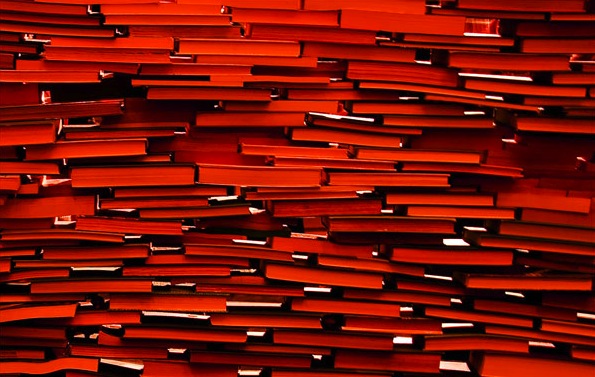Scientist or Mystic
A young poet today, finding his or her own way, must decide to be either a mystic or a scientist.
Being a scientist in poetry has a clear trajectory and a long history. Being a scientist is lauded often, showered with money and kisses, and it can be a correct way of being in many aesthetic forms. A mainstream or dominant sense of poetry favors science, because it is viewed as smart or keen. There is a moralism in understanding that science is the right way of seeing things.
Poets who are scientists observe and record things. There is a rational air to all they care about. Language has a cool feel. There is detachment.
They may become detached for a variety of reasons, but the main reason is that it is easiest on the heart. If they live, wake, record, and say they are a poet, they can go about their business. Poetry becomes interesting. It does not drive the self around in circles. It can be considered under this light as a difficult art. But poetry, itself, is not difficult. It is the cool detachment that makes it so.
To me, poets are interesting because they are lenses to better understanding creativity. A poet is a novel language creator. More than any other person who engages with words in a serious way, a poet understands that language has no static quality, that it exists in a constantly liquid form.
Grammar is a killer when we see it as a fixed thing. Then it consumes all that is around it, a wide and ever-reaching black hole that copies and recopies all the dominating ideas of race and class it holds. It becomes the frame to keep all new things out. We need the new for language to survive. So grammar is a thing to be careful around.
Poets who are scientists understand this very well through study of language. But they do not always practice what they know.
A poet can take the skills of detachment to another, greater end. This involves not grammar, but holy rhetoric. But it is a road that is not clear and that may hurt many times over to go down. What I mean by this is that a poet can be a mystic.
Yes, it is a difficult road, with a long history, too. A poet sadly is always a mystic, whether acknowledged or not.
I think a lot about the wild contemporary American poet as having a metaphysical “I.” All great poets employ the metaphysical “I.” That is to say the “I” can be a shape shifter, with no ground, with no form that is finite or no form at all.
Or I mean that the “I” of a poem can be anyone or anything, all the things the poet has not yet been, seen through the lens of what he or she already has been.
This is a choice for a poet today, maybe the only choice, where poet is part seer, part magician, part nothing at all. As we all are.
This isn’t anything new. But it is noteworthy.
It is the way to make the new. That’s all the mystic wants.
That’s all I want, too. Don’t you?








